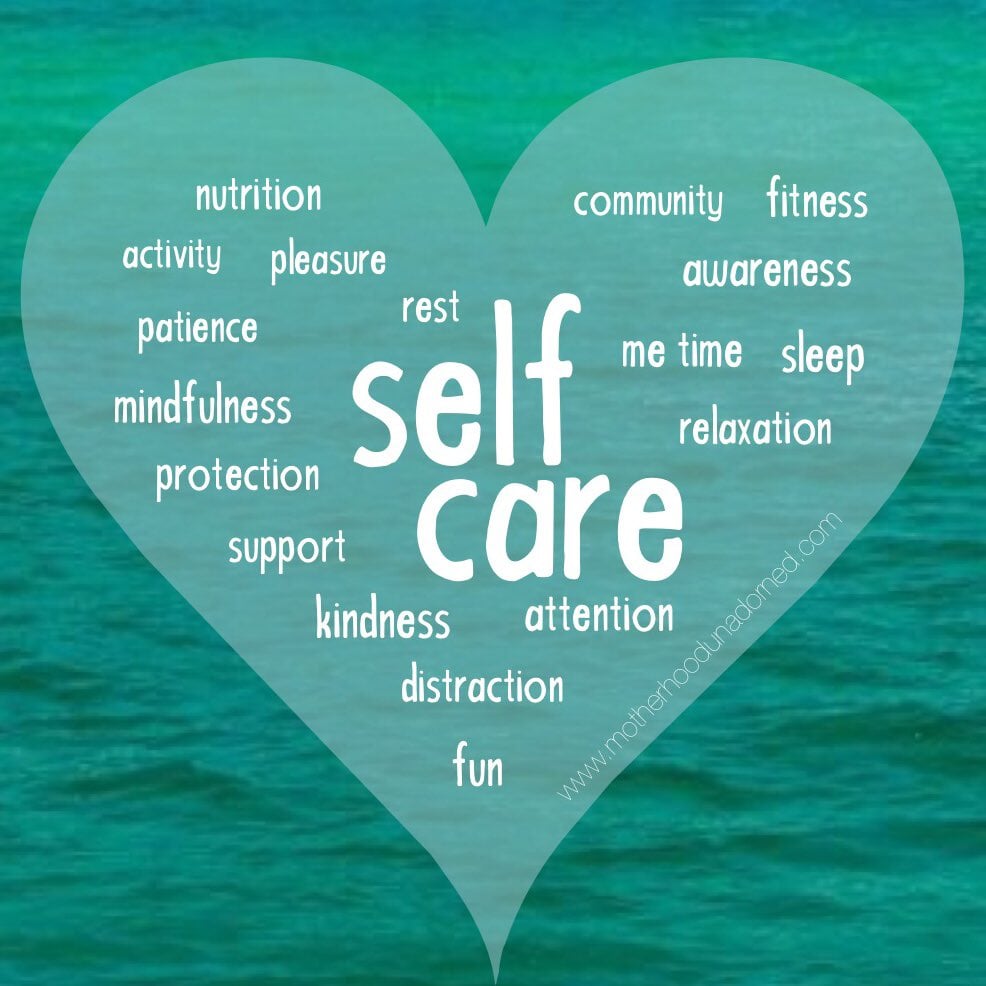In this modern day and age, more emphasis has been placed on caring for our mental health, and it seems to be working for the better!
Having positive mental health is essential for overall well-being and plays a crucial role in leading a fulfilling and meaningful life. Not only does it improve your overall mood, but it also helps you to be more present for yourself and your loved ones and frees up more of your mental capacity to accommodate your passions and interests as well.
Positive mental health is often linked to better physical health. It can contribute to a stronger immune system, lower stress levels, and reduced risk of certain chronic diseases.

While learning how to manage your stress is a multifaceted battle, self-care is something that you can tackle on your own. It may seem like the last thing on your mind during challenging periods, but that the most crucial time to take care of your well-being.
Without further ado, Here are four self-care tips to help students cope with stress:
1. Establish a Routine:
Consistent Schedule: Create a daily routine that includes designated study times, breaks, meals, and sufficient sleep. This helps you to avoid either overworking or overindulging in your distractions, which may lead to feelings of guilt and laziness.
Having a structured schedule helps establish a sense of normalcy and control, as well as keeping you on track to achieve your daily tasks.
There are many avenues for you to build your routine, from old-school pen and paper to apps available on your smartphone or laptop that can give you pings to alert you when it is time to move on to the next activity.
One thing to take note of is to ensure that your routine includes self-care activities such as exercise, relaxation, and hobbies. These activities are vital for maintaining a balanced and healthy lifestyle. Not only that, they provide a healthier alternative to doom-scrolling in your dark bedroom. (Don’t worry, we are all guilty of this)
2. Stay Connected and Seek Support:
Maintain connections with friends, family, and peers. While you might need to be alone sometimes to focus on your revisions, maintaining your social life allows you to share your thoughts and concerns with others who can provide emotional support and different perspectives.
Socializing also serves as a positive distraction from stress. You can even include your friends and family in your self-care activities, and help them take care of their mental well-being as well. Building a community that prioritises mental health aids in enforcing positive habits.

However, if your stress becomes overwhelming, consider reaching out to a counsellor or mental health professional. If you don’t know where to look, your educational institution may offer counselling services to students, providing a confidential and supportive space to discuss challenges.
If that is not available to you, many resources in Singapore provide free or low-cost counselling for youth.
3. Healthy Lifestyle Choices:
Maintaining health and wellness is not just in the mind. For a good foundation for good mental health, you first need to take care of your body.

Now is the best time to stick to a well-balanced diet with nutritious foods. Resist the urge to skip meals during those long study sessions, and include fruits, vegetables, and whole grains in your meals. This can positively impact your energy levels and overall well-being.
Feel free to indulge in a little sweet treat every now and then though, as dark chocolate, when consumed in moderation, is said to improve brain function and boost dopamine levels.
Diet aside, it is very important to ensure you get enough sleep each night. While all-nighters and late nights are part and parcel of student life, try to keep burning the midnight oil to a minimum. Lack of sleep can contribute to heightened stress levels and negatively impact cognitive function. Establish a relaxing pre-sleep routine to promote quality rest.
4. Set Realistic Goals:
In order not to overstress yourself, it is important to break a large task into smaller steps. For example, having to memorise many chapters all at once might seem very overwhelming, but by assigning yourself one or two chapters over a period of time, the task will seem more manageable. This is why ensuring you have adequate time to study and not leaving everything to the last minute also helps with reducing stress levels.
When facing a large project or multiple assignments, break them into smaller, more manageable tasks. This approach can make the workload seem less daunting and help you stay focused on achievable goals.
It also helps to identify the most important tasks and tackle them first. If possible, delegate responsibilities or seek assistance when needed. Knowing your priorities and seeking support can alleviate some of the stress.
It is never a bad thing to ask for help. If you are struggling with your schoolwork despite trying your best, perhaps it might be time to consider engaging a tutor.
At SmileTutor, we offer a range of tuition services to cover your needs over a wide range of subjects. Having additional support might also help to alleviate your stress levels!

In essence, self-care for students is a proactive and transformative approach that acknowledges the importance of holistic well-being. As students learn to prioritize their physical and mental health, they not only enhance their academic performance but also lay the foundation for a balanced and fulfilling life beyond the classroom. As we advocate for the importance of self-care in the lives of students, we pave the way for a generation that is not only academically accomplished but also resilient, compassionate, and equipped to face the challenges of the future.
